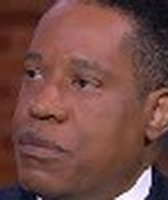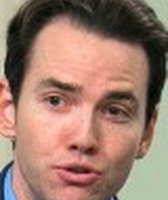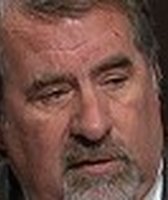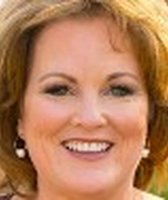Stand up for the facts!
Our only agenda is to publish the truth so you can be an informed participant in democracy.
We need your help.
I would like to contribute
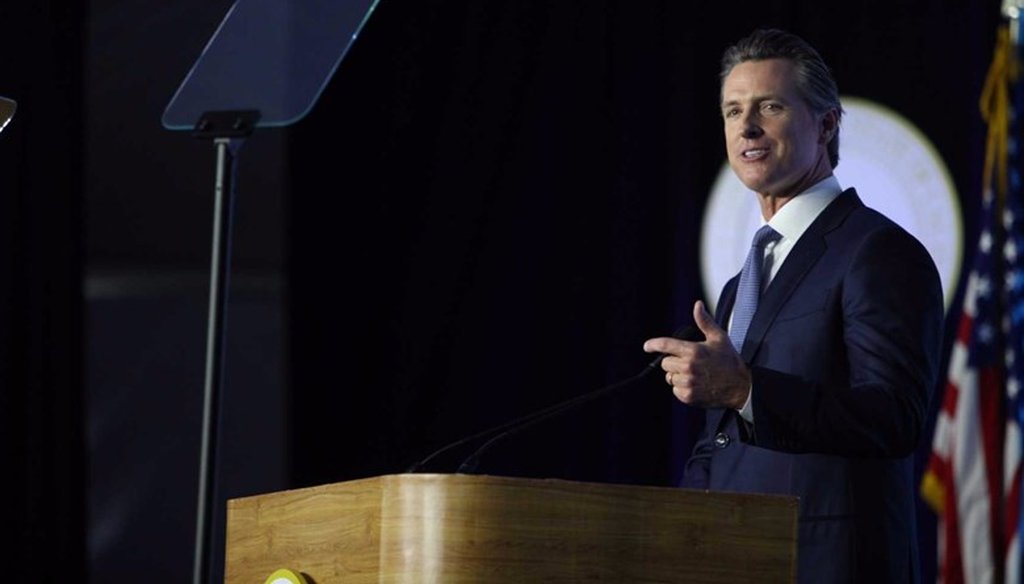
Democrat Gavin Newsom was sworn-in as California's 40th governor on Jan. 7, 2019. Andrew Nixon / Capital Public Radio
During his inaugural address, California Gov. Gavin Newsom claimed California’s rents are rising, its wages are stagnant, and described homelessness in the state as an "epidemic."
The 51-year-old Democrat and former San Francisco mayor also pledged to build what would be the "largest fiscal reserve of any state in American history," and weighed in on the cost of President Trump’s border wall.
PolitiFact California fact-checked these statements, offering our early analysis on each.
‘Costs that keep rising’
Newsom described the economy as "booming." But he also said Californians are experiencing "stagnant wages. Costs that keep rising – rent, utilities, visiting the doctor – the basics are increasingly out of reach." We looked at wages and rents.
Newsom’s claim on wages leaves out some key information as far as the trend across the country. Nominal wages, those not adjusted for inflation, have jumped by nearly 3 percent over the past year -- the highest increase in a decade, and hardly stagnant. But when inflation is factored in, Newsom’s claim is on track.
Here’s how the Pew Research Center described nationwide wage trends last August:
"(D)espite the strong labor market wage growth has lagged economists’ expectations. In fact, despite some ups and downs over the past several decades, today’s real average wage (that is, the wage after accounting for inflation) has about the same purchasing power it did 40 years ago. And what wage gains there have been have mostly flowed to the highest-paid tier of workers."
Newsom’s claim about rising rents is also correct. But, again, it needs a clarification. Cities across California have experienced dramatic rent increases in recent years, with some, such as Sacramento, seeing rents climb more than 8 percent in a single year. But those have slowed, or even reversed slightly in some cities, with the construction of more apartments, the Los Angeles Times reported last September.
Examining the long-term pattern, Californians have seen more of their paychecks gobbled up by rent. From 1960 to 2013, the percentage of family income needed for rent in California nearly doubled, from about 20 percent to 37 percent, according to the Legislative Analyst’s Office. The cost was even higher for young renters, age 18 to 30, who paid 44 percent of their income.
‘Homeless epidemic’
Newsom described homelessness in California as an "epidemic." The most recent federal homeless count showed a small decline in the state’s homeless population, down 1.2 percent, to an estimated 129,972, last year. Yet that total is far more than any state, and follows a 14 percent uptick from 2016 to 2017.
That was much different than the national picture. The national homeless population rose only 1 percent in 2017 and was 13 percent lower than in 2010, according to an NPR analysis.
‘Largest fiscal reserve’
Here’s what Newsom claimed about building a historic fiscal reserve, speaking at the state Capitol in Sacramento:
"We will be prudent stewards of taxpayer dollars, pay down debt, and meet our future obligations. And we will build and safeguard the largest fiscal reserve of any state in American history."
Last month, we rated Mostly True outgoing Gov. Jerry Brown’s claim that California’s budget surplus is about "$30 billion." We clarified that includes a projected $14.5 billion Rainy Day reserve fund at the end of the next fiscal year, and $14.8 billion in discretionary funds the Legislature is expected to have, also next fiscal year.
The rainy day reserve is likely already larger than any state’s, said Michael Genest, former Gov. Arnold Schwarzenegger’s finance director.
"It's possible that it's true since we are so large and have such a large government as a percent of the economy," Genest said in an email, if the reserve is measured "in nominal dollars."
But as a percentage of state expenditures, California’s trails many others. He cited a January 2018 chart by Pew showing the number of days each state could run on their rainy day funds. California could go for about 22 days, while Alaska could run for 382 days and Texas for 70.
A spokesman for Newsom said more information about this pledge would be expected available when the governor releases his first budget later this week.
How bad was California’s economy in the past?
Along with laying out his plans, Newsom made several accurate claims about how far California’s economy has come since the Great Recession.
"Back then, we were $27 billion in debt," he said. "Unemployment above 12 percent. The worst credit rating of any state in our nation. Today, our economy is larger than all but four nations in the world. We’ve created nearly 3 million jobs and put away billions for a rainy day."
The budget shortfall figure is correct. When Gov. Brown took office in 2011, the state faced a $27 billion deficit. Brown helped erase that through deep spending cuts and leading successful campaigns for voter-approved tax increases.
Newsom was also correct about California’s 12.1 percent jobless rate that same year. That had dropped to 4.1 percent in November 2018, according to the most recent report available.
California’s credit rating has also seen improvement. In 2010, PolitiFact looked into a claim by Brown that the state had the worst credit rating in the country. At the time, the three biggest U.S credit rating agencies all gave California’s G.O. bonds the nation’s lowest ratings. Those ratings have been revised upward in years since.
News and government reports also support Newsom’s claims that the state has created "nearly 3 million jobs" since the Great Recession and that it’s economy is "larger than all but four nations in the world," a topic PolitiFact California has fact-checked in the past.
Cost of Trump’s border wall
Newsom also weighed in with a brief mention of the cost of President Trump’s proposed wall along the Southern border. The governor argued against pouring "billions into a wall that should never be built."
PolitiFact California in 2017 examined cost estimates for the project, finding they range from $15 billion to $70 billion, depending on the source.
Through our recently-launched Newsom-Meter project, PolitiFact California is tracking 12 of Newsom’s campaign promises. Those will include some of the topics he discussed in his inaugural speech such as homelessness and housing.
PolitiFact California intern Sami Soto contributed research and writing to this article.
RELATED: Transcript: Hear Gov. Gavin Newsom's Inauguration Speech
Our Sources
Gavin Newsom, inaugural address, Jan. 7, 2019
Nathan Click, spokesman for Gov. Gavin Newsom, email exchange Jan. 7, 2019
Michael Genest, finance director for former Gov. Arnold Schwarzenegger, email exchange, Jan. 7, 2019
PolitiFact California, Has California’s homeless population ‘skyrocketed’? And how does it rate nationwide?, March 27, 2018
San Francisco Chronicle, California’s homeless number drops a little as programs appear to pay off, Dec. 17, 2018
U.S. Dept. Of Housing and Urban Development, 2018 Annual Homeless Assessment Report, Dec. 2018
Pew Research Center, For most U.S. workers, real wages have barely budged in decades, August 7, 2018
Washington Post, U.S. workers see fastest wage growth in a decade, but inflation takes a toll, Oct. 31, 2018
Los Angeles Times, After years of dramatic increases, rents are finally showing signs of slowing, Sept. 21, 2018
Bureau of Labor Statistics, Local Area Unemployment Statistics, Accessed Jan. 7, 2019
PolitiFact California, Does California have a budget surplus of nearly ‘$30 billion,’ as Gov. Jerry Brown claimed?, Dec. 18, 2018
PolitiFact, Jerry Brown says California's not exactly the Golden state when it comes to credit ratings, June 11, 2010


